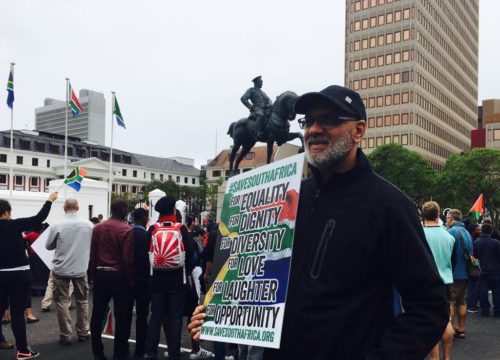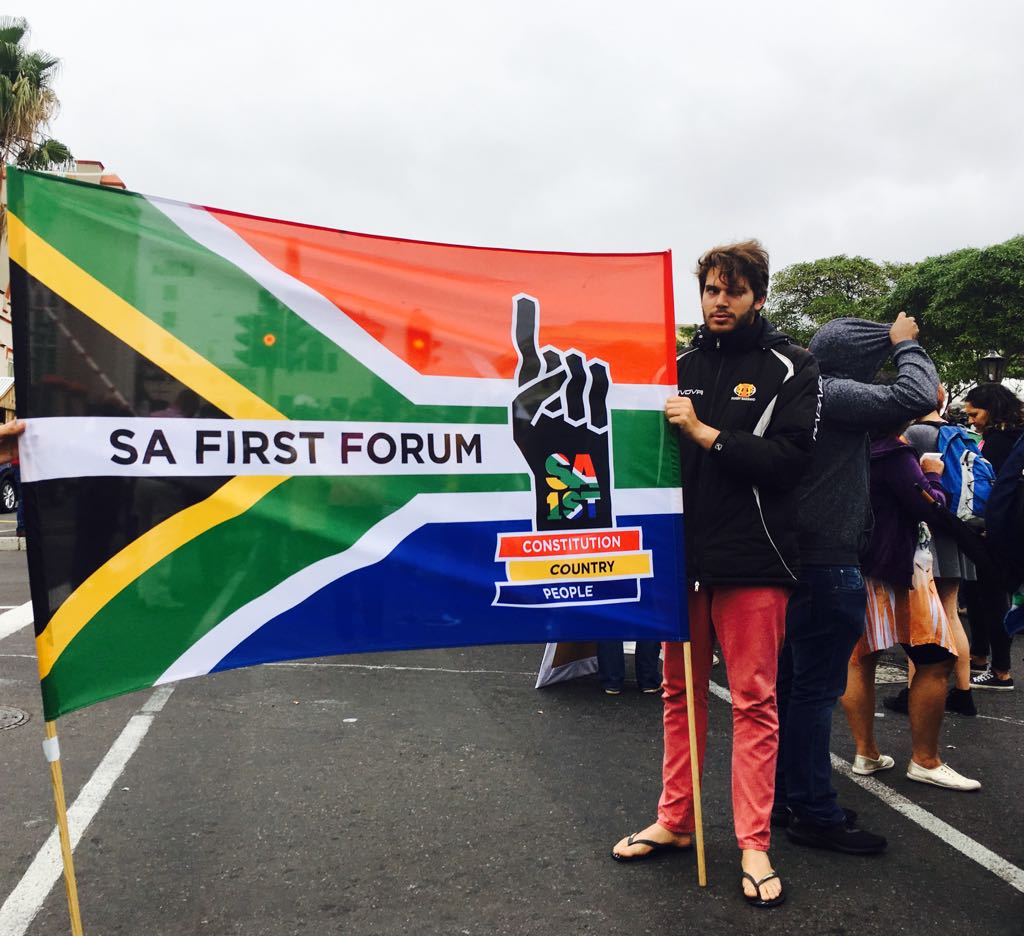South Africans are reeling after waking up to another shocking cabinet reshuffle, reliving the Nene-gate saga of 2015. At midnight, President Jacob Zuma announced 10 changes to his cabinet, including firing beleaguered finance minister Pravin Gordhan. While there were no surprises that Gordhan and his deputy Mcebisi Jonas would be chopped, the decision to put Home Affairs minister Malusi Gigaba at the helm of Treasury has raised eyebrows. Many analysts believe Zuma’s reshuffle was a tactical move to eliminate his detractors, and to re-position his loyalists.

Outside Parliament, incensed Capetonians braved the rain to vocalise their outrage at Zuma’s decision and to call on South Africans to not be complacent on the matter. People from all walks of life, many who are part of the collective Save SA, held placards with the slogans “Zuma Must Fall” and “Hands of Treasury”.
“I’m absolutely horrified,” said protestor Leslie Feinstein.
“Zuma had put all his patsies in to serve his end. Mandela and Kathrada would be spinning in their graves.”
Rod Solomons from the SA First Forum said whilst Zuma has the power to appoint and fire ministers, he has “abused his power”.

“This man was the head of the ANC’s intelligence operatives, and he has outmanoeuvred the ANC and the SACP. Once again he has shown them the upper hand at the expense of ordinary South Africans and to the advantage of those whose pockets he is in. He has allowed our state to be captured by outside forces,” he told VOC News.
Felicity Harrison said she was disappointed with the concealed manner in which Zuma made the announcement.
“We believe that protest is an essential part of our democracy and we need to hold our accountable to account. The most important challenges facing South Africa are poverty and unemployment. And when decisions get made and this is not the priority, it’s important for citizens to come out and show their disapproval.”

But while most demonstrators are outraged by the state of politics, many underscored the need for South African’s to take back their power. Many picketers urged South African citizens not to be armchair critics, but active participants in the democracy.
“I’m tired of all of this. I feel that we have been quiet for too long and we need to stand up and make our voices heard. We were here in 1988 [during apartheid] and we asked for change. We got that change but this is not the change we asked for,” says Mukhtar Mukkadam.

“I feel hopeless. What do we do…how can we mobilise and make a difference?” says Wendy Masters.
“The call to get off social media and to get to the streets is critical. I get the sense from Zuma that we aren’t to be taken seriously. The public will wake up tomorrow and its business as usual. This is a turning point for us to take a stand for all South Africans and come together and show our immense unhappiness.” VOC










